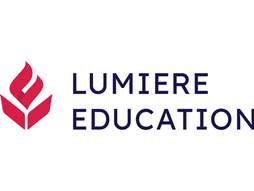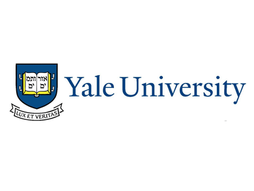Winning the Profile in Courage Essay Contest - 10 Tips to Help You Win
Are you interested in politics? Do you like learning about heroes of the past? Do you enjoy writing or are you looking to strengthen your writing skills? Are you competitive or interested in winning $10,000 and a trip to Boston? Are you seeking an effective and creative way to strengthen your resume and college application?
Then take a look at the John F. Kennedy Profile in Courage Essay Contest.
Essay contests can be a solid way to boost your academic profile while simultaneously improving your writing skills and learning more about a topic of interest. Having seen notable winners such as Pete Buttigieg, this recognized writing contest provides a great way for you to showcase your writing skills and initiative. In this blog post, we introduce the John F. Kennedy Profile in Courage Essay Contest, the benefits of participating in writing contests, the logistics of the contest, and some tips to help you win!
Why should you participate in writing contests as a high school student?
Before we introduce the specifics of the John F. Kennedy Profile in Courage Essay Contest, it is important to review the benefits of participating in writing competitions as a potential college applicant.
As is with the John F. Kennedy Profile in Courage Essay Contest, writing competitions usually involve a topic related to real-world issues. The opportunity to write about these topics provides you a way to demonstrate to colleges and universities that you are socially aware and engaged with relevant topics.
Outside of the topic itself, participating in a writing competition is a unique addition to your application. It expresses to college admissions that you have an array of interests and talents and take initiative on your own time to pursue them.
Critical thinking and research skills are important assets to have in the college environment. Conducting in-depth research for the writing competition will allow you to refine these skills as well as convey to college admissions that you know how to conduct independent research.
Although participating in the competition is already a nice addition to your resume, winning or placing in a notable essay competition is a remarkable achievement that will further distinguish you from other applicants.
What is the John F. Kennedy Profile in Courage Essay Contest?
In 1957, John F. Kennedy wrote the Pulitzer Prize-winning book, “Profiles in Courage.” “Profiles in Courage” details the stories of eight United States senators who displayed courage by taking a moral stance on issues. The John F. Kennedy Profile in Courage Essay Contest, following the theme of “Profiles in Courage”, asks students to explore the topic of political courage and write an essay on an elected official who served during or after 1917, the year John F. Kennedy was born, and displayed these traits.
Is it Prestigious?
With notable former winners and almost $30,000 in cash prizes, this essay contest is sure to make an impressive mark on your resume. Additionally, the winner is invited to the 2024 Profile in Courage Award event at the John F. Kennedy Library Foundation where they will be able to share space with important figures. Past winners of the Profile in Courage Award include former U.S. presidents such as Barack Obama and George H.W. Bush.
Important Dates and Deadlines
Opens Sep 1, 2023, 12:00 AM (EDT)
Deadline for registration form submission AND essay - January 12, 2024, at 11:59 PM (EST)
Results release date - April 20th, 2024
Winners will be notified by telephone and email
All participants will receive a letter containing the list of winners as well as a Certificate of Participation by the end of May
Who is Eligible to Participate?
The contest is open to United States high school students in grades nine through twelve attending public, private, parochial, or home schools
U.S. students under the age of twenty enrolled in a high school correspondence/GED program in any of the fifty states, the District of Columbia, or the U.S. territories are eligible.
U.S. citizens attending schools overseas can also participate
Past winners and finalists are not eligible to participate
What do Winners Receive?
The contest awards its winners with hefty cash prizes up to $10,000, as well as a fully-funded trip to Boston with their family and teacher at the Profile in Courage Award ceremony. Every participant, regardless of the outcome, will receive a Certificate of Participation. Additionally, there are no other costs associated with the contest that you will have to bear as a participant.
How do I Nominate a Teacher?
The contest requires you to have a nominating teacher. The role of the nominating teacher is to provide you with guidance and support while you are writing your essay. Additionally, they must review your essay to make sure it is free of errors and matches all conventions
The winner and their nominating teacher will receive awards at the annual Profile in Courage Award ceremony held each May at the Kennedy Presidential Library in Boston (in case you need to incentivize your teacher). Your nominating teacher can be a former or current teacher but must still teach at your current school (If you are home-schooled, your instructor can be your nominating teacher)
What are the judging criteria?
For a full breakdown of judging criteria, please make sure to visit the official website. Here is a brief overview of how the essays are judged.
55% of your final score is based on the content of your essay
Demonstrated understanding of political courage
Originality
Supporting Evidence
Source Material
45% of your final score is based on presentation
Quality of writing
Organization (structure, paragraphing, introduction, and conclusion)
Conventions (syntax, grammar, spelling, and punctuation)
What are Some Details About the Essay that I Should Keep in Mind?
Prompt
The essay should review an act of political courage performed by a U.S. elected official who served after 1917
In the spirit of “Profiles in Courage”, acts of political courage are characterized as times when elected officials went against the grain and risked their careers to take a moral stance.
Essay Requirements
Length - between 700 - 1,000 words (excluding citations and bibliography)
Number of sources - a minimum of five sources
Sources can be government documents, letters, newspaper articles, books, and even personal interviews
Format
Essays must include a bibliography
Accepted formats include APA, MLA, or Turabian
Please make sure to review their official guidelines
10 Tips to Help You Win
Originality (Avoid writing about very common officials) A large part of their judging criteria is originality. The judges are looking for essays that stand out and offer fresh perspectives. Specifically, they are looking for essays that have an original choice of a U.S. elected official whose story is not widely known. If you choose a well-known official, it is important to provide a unique, fresh perspective on their story. Ideally, they recommend choosing a local official such as a city councilor or school board official. They have even provided a list of officials to avoid writing about. To get an idea of what kind of stories previously won, visit this page.
Have an Understanding of Political Courage Ensure you thoroughly comprehend the concept of political courage, as defined in "Profiles in Courage." Your essay should highlight situations where elected officials took a moral stand, even if it risked their careers. This understanding is important in demonstrating the elected official's bravery. One way to gain a deep understanding of political courage would be to read “Profiles in Courage” or the chapter summaries.
Conduct Extensive Research and Diversify Your Sources The guidelines require at least 5 sources, but when selecting sources, do not strive to just satisfy the minimum requirement. Find sources that help drive your story and emphasize the specific act of political courage. Choosing a diverse set of sources from different mediums can help keep your story interesting and really bring it to life. Additionally, make sure to properly cite your sources.
Write Clearly and in an Engaging Manner The bare minimum is to make sure you are using proper syntax and conventions. Not satisfying this will make it hard for the judges to read. Additionally, make sure you make it natural for the judges to read. It should be fluid and concise to allow them to really be drawn into your story. To check your writing, try methods like reading it out loud to avoid long sentences.
Work Closely with your Nominating Teacher Your nominating teacher can be a great resource to help with every step of the process. Make sure you pick a teacher that you have a good relationship with and is knowledgeable on the subject. This way they will be able to help you with everything from finding sources to making sure the essay is well-written and engaging. Additionally, make sure to thank your teacher (they are taking the time to help you)!
Stay Focused on the Act of Political Courage This contest is about highlighting specific acts of political courage by elected officials. You only have 700 - 1,000 words to tell your story. You should make sure you are dedicating this space to highlighting this elected official's act of political courage rather than turning your essay into a comprehensive biography of the official. Background information is good, but you should concentrate on the relevant background information and the key moment where they displayed political courage and explore the context, consequences, and significance of that act.
Seek Feedback and Revise Throughout the Process Before submitting your essay, make sure to constantly proofread and revise (do not just wait to do this for the final draft). Ask your nominating teacher, friends, and family for feedback consistently throughout the process. This way you will be able to get a diverse range of perspectives and identify areas of improvement throughout the process.
Interview The Elected Official or Their Peers/Family As previously mentioned, since the judges are looking for originality, it is a good idea to consider writing about a local elected official. Having sufficient sources is necessary, but interviewing the local elected official, their family, or their peers can be an effective way to add a unique element to your story. This extra dimension will make your essay more engaging and show the judges and college admissions board you are dedicated to your work.
Craft a Captivating (and Natural) Introduction The judges will be reading many essays, so it is important to make sure you grab their attention from the beginning. Your introduction should make the reader want to continue reading as well as set the stage for the rest of your essay. You can employ classic introduction techniques such as using an intriguing anecdote, a thought-provoking quote, or a compelling question related to political courage. It is important to make it sound natural as well. Sometimes when using one of these techniques to “grab the reader’s attention”, the introduction can sound somewhat contrived. Make sure you strike a balance between engaging the reader and staying true to your tone and topic.
Conclude with an Impact Finally, it is important to conclude with something that will round off your essay well, drive your story home, and give the judges something to think about. Again, they will be reading many essays, so an impactful conclusion is an effective way to leave a lasting impression on the judges. Make sure to summarize the significance of the elected official's act of political courage and the impact it had. You can also connect it to broader themes or contemporary issues.
If you’d like to supplement your competitive experience with independent research, consider applying to Horizon’s Research Seminars and Labs!
This is a selective virtual research program that lets you engage in advanced research and develop a research paper on a subject of your choosing. Horizon has worked with 1000+ high school students so far and offers 600+ research specializations for you to choose from.
You can find the application link here
One more option - Lumiere Research Scholar Program
If you’re looking for the opportunity to do in-depth research on various topics in literature or linguistics, you could also consider applying to one of the Lumiere Research Scholar Programs, selective online high school programs for students I founded with researchers at Harvard and Oxford. Last year, we had over 4000 students apply for 500 spots in the program! You can find the application form here.
Stephen is one of the founders of Lumiere and a Harvard College graduate. He founded Lumiere as a PhD student at Harvard Business School. Lumiere is a selective research program where students work 1-1 with a research mentor to develop an independent research paper.













